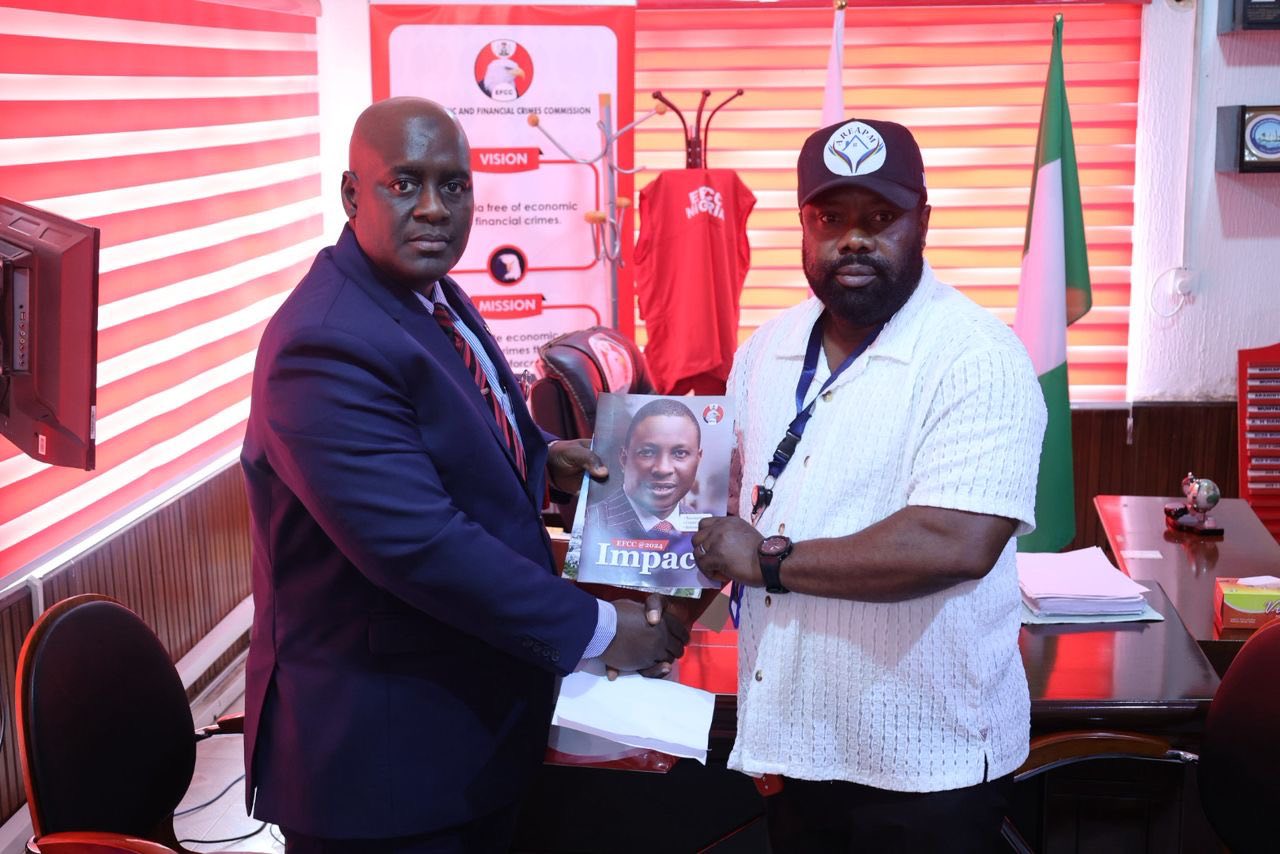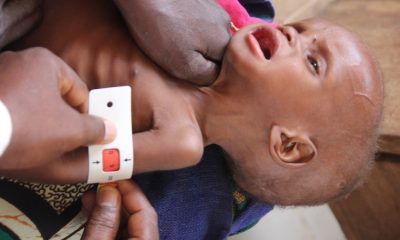General
AfDB Invests $24b in Agric to Save One Billion from Hunger

By Dipo Olowookere
Global partners have been called upon by the African Development Bank (AfDB) to join hands to lift one billion people worldwide out of hunger.
The continental lender said it was leading the way by investing $24 billion in African agriculture over the next 10 years in the largest such effort ever.
“We are not winning the war against global hunger,” Bank President Akinwumi Adesina told an agriculture conference at Purdue University in Indianapolis on Tuesday, 25 September.
“We must not get carried away,” he added, referring to statistics showing a decline in the global population living on less than two dollars per day. In reality, the number of hungry people in the world had increased from 777 million in 2015 to 815 million in 2016, he said citing the latest World Food Security and Nutrition data.
Mr Adesina told the audience that included researchers, implementing organizations, business leaders, policymakers and donors that simple technical and scientific methods were already making a whole difference to farm yields and income in Africa. While such technologies to deliver Africa’s green revolution exist, they are mostly just sitting on the shelves, he said.
“The release of water efficient maize varieties now allows farmers to harvest good yields in the face of moderate drought,” he noted. “Today, rice varieties exist that can give yields of 8 tonnes per ha. Cassava varieties exist with yields of up to 80 tonnes per ha. Heat tolerant and disease resistant livestock and technologies for ramping up aquaculture exist.”
Bank experts put current comparative yields at 1.5-2 tonnes per ha for rice and 10-15 tonnes per ha for cassava.
What was needed urgently was deployment of supportive policies to ensure technologies are cascaded down to millions of farmers. “All Africa needs to do is to harness the available technologies with the right policies and rapidly raise agricultural productivity and incomes for farmers and assure lower food prices for consumers.”
The Bank has launched its Technologies for African Agricultural Transformation (TAAT), a $1 billion initiative to extend the use of farm technologies. TAAT is currently engaging seed companies, public and private entities, and financial institutions in 27 countries to make technology available to a total of 40 million African farmers.
Combining targeted subsidies for farmers with a market-based system for rapidly expanding access to financing for farmers and agricultural value chains is the fastest way to get many people out of poverty to a sustained pathway for economic growth, Mr Adesina added.
The conference on “Scaling Up Agricultural Technologies for Transformation” marked Mr Adesina’s fond return to his alma mater.
“It was here, as a graduate student, that I began the journey of searching for ways to get technologies into the hands of millions of farmers,” he said. Mr Adesina was to go on to make a huge impact on the transformation of agriculture in Africa, including implementing game-changing policies in his years as Nigeria’s Minister for Agriculture and Rural Development before taking up his post at the Bank in September 2015.
Mr Adesina said the situation in Sub-Saharan Africa needed particularly urgent intervention due to the ravages of climate change. The International Food Policy Research Institute estimates that Africa will add 38 million to its number of hungry people by 2050 as a result of climate change. The Institute forecasts that Africa will experience major food shortages by 2020 and beyond, while malnutrition will be on the rise over the next 20 years.
The Bank’s ongoing initiatives had the objectives of growing income for farmers, stabilizing prices for staple crops, reducing losses and stimulating multiplier effects in local economies. With its Staple Crop Processing Zones and other initiatives, the Bank is demonstrating how this can be done.
“The African Development Bank put feeding Africa as one of its topmost priorities when it launched its Feed Africa strategy in 2015 and is investing $ 24 billion in agriculture for Africa over 10 years – the largest ever such effort,” the Bank President said. Across Africa, the Feed Africa Strategy is supporting the development of policies, markets, infrastructure and institutions that will ensure that agricultural value chains are well developed and that technologies reach several millions of farmers.
Mr Adesina called for global partnerships to establish Staple Crop Processing Zones across Africa.
“The SCPZs will provide several advantages for rural economies. They will create markets for farm produce. Raw materials will no longer be moved out of rural areas, but as finished value-added products. Post-harvest losses will be substantially reduced. Well integrated agricultural value chains will develop, with supportive logistics, especially warehousing and cold chains,” Mr Adesina added.
The African Development Bank has already started investments to develop these SCPZs in a number of pioneering African countries, including Ethiopia, Togo, Democratic Republic of Congo and Mozambique. It expects the processing zones to be active in about 15 countries in the near-term.
General
Tinubu Tasks Acting IGP Disu to Restore Peace, Strengthen Security Nationwide

By Modupe Gbadeyanka
The acting Inspector-General of Police (IGP), Mr Tunji Disu, has been charged to do everything within his powers to restore peace and strengthen security across the nation.
This task was given to the new police chief by President Bola Tinubu after being decorated at the State House in Abuja on Wednesday.
Mr Disu was chosen to succeed Mr Kayode Egbetokun on Tuesday. His appointment is expected to be approved by the Nigeria Police Council and confirmed by the Senate next week.
President Tinubu described Mr Disu’s appointment as coming at a critical moment, urging him to rebuild public confidence in the police’s capacity to do their job in collaboration with other security forces.
“I made this decision for you to assume this responsibility. I know your record. I saw the dedication you exhibited while you were in Lagos when I was governor,” the President said.
“Lead firmly but fairly, demand professionalism at every level and ensure that the safety of lives and property remains our highest priority. It’s a daunting challenge. I know you can do it. You have my word, you have my full support,” he added.
Mr Tinubu urged him to advance the security pillars of his administration’s Renewed Hope Agenda. He expressed confidence in the Acting IGP’s discipline, operational experience and leadership capacity.
“Nigeria is challenged with banditry, terrorism and other criminal activities. You will be part of the thinking and innovation to overcome them,” the President said, reaffirming his belief that Nigeria would prevail under a committed leadership.
The President also paid tribute to Mr Egbetokun, who was present with his spouse, saying, “We are a grateful nation. Nigeria appreciates your contribution to maintaining law and order.”
He urged Egbetokun to be ready to offer useful advice to his successor and wished him and his family peace, good health and success in future endeavours, noting,
“You have not succeeded without a good successor. His success will also be part of your legacy.”
Mr Tinubu urged all security stakeholders to work collectively to safeguard lives and property during this critical period.
General
Real Estate Sector Now Safe Haven for Fraudsters—EFCC

By Modupe Gbadeyanka
The chairman of the Economic and Financial Crimes Commission (EFCC), Mr Ola Olukoyede, has lamented how “people now defraud the government and individuals and invest in real estate.”
He raised this concern when he received the executives of the Association of Real Estate and Property Managers (AREAPM) in Edo State on Wednesday.
The EFCC chief, represented by the acting Zonal Director and Deputy Commander of the Commission, Mr Sa’ad Hanafi Sa’ad, warned real estate managers against money laundering.
“We have noted with grave concern that fraudsters are laundering money and hiding proceeds of crime through real estate and property. People now defraud the government and individuals and invest in real estate,” he stated.
He noted that the agency would continue to discharge its statutory mandate of bringing those who seek to circumvent the system to book.
“As a commission, we recognise the role of Real Estate and Property Managers. Property Managers are designated non-financial businesses and professions.
“So, we expect them to be professionals and uphold the relevant rules and regulations in the discharge of their duties,” he stated, adding that, “The commission will apply the laws when there is a breach of relevant rules and regulations.”
He assured the AREAPM executives of the organisation’s willingness to collaborate with them in dealing with fraud and criminality in the sector.
“We have a unit, the Land and Property Fraud Section, which attends to issues in that regard. So, when you have challenges, you can report to us,” he stated.
In his remarks, the chairman of AREAPM in Edo State, Mr Akpesiri Michael Egbonoje, stated that the essence of the visit was to seek areas of collaboration with the commission and work out ways of combating real estate financial crimes and fraud in the state.
“Part of our strategy is to familiarise ourselves with law enforcement agencies in the state and seek for collaborative relationships. As a body, we cannot do it alone; we need help in the areas of financial crimes.
“We have tried to sanitise the space, but we realised that your agency is at the apex when it comes to dealing with financial crimes.
“We believe that structured collaboration between AREARM and the EFCC will promote financial transparency, investor confidence, and accountability within the real estate sector.”
General
Coroner’s Court Fixes April 14 for Inquiry into Death of Chimamanda Adichie’s Son

By Adedapo Adesanya
The Coroner’s Court sitting at the Yaba Magistrate Court has announced April 14, 2026, for the commencement of an inquiry into the death of 21-month-old Nkanu Nnamdi Esege, son of renowned Nigerian author Chimamanda Ngozi Adichie and Dr Ivara Esege.
Magistrate Atinuke Adetunji fixed the date on Wednesday when the matter came up before the court.
The twin child, Nkanu, died on January 7, 2026, after receiving care at Atlantis Hospital and undergoing medical procedures at Euracare Multi-Specialist Hospital in Lagos.
The child was initially admitted to Atlantis Hospital in Lagos for what was described as a worsening but initially mild illness.
The family had sought initial care as arrangements were being made to transfer him to Johns Hopkins Hospital in the United States. Atlantis referred him to Euracare for pre-flight diagnostic procedures, including an MRI, lumbar puncture, and insertion of a central line.
However, the child passed away following the procedures.
His parents have alleged medical negligence and professional misconduct in connection with his death.
According to a leaked internal message sent privately to family members and close friends at the time, Ms Adichie blamed the staff of Euracare Multi-Specialist Hospital, located in Victoria Island, Lagos, for causing the demise of the lad.
“My son would be alive today if not for an incident at Euracare Hospital on January 6th,” she wrote in a broadcast message confirmed later on.
“We have now heard about two previous cases of this same anesthesiologist overdosing children. Why did Euracare allow him to keep working? This must never happen to another child,” she also wrote in the lengthy message.
The 48-year-old writer had her first child, a daughter, in 2016. In 2024, her twin boys were born using a surrogate.
-

 Feature/OPED6 years ago
Feature/OPED6 years agoDavos was Different this year
-
Travel/Tourism10 years ago
Lagos Seals Western Lodge Hotel In Ikorodu
-

 Showbiz3 years ago
Showbiz3 years agoEstranged Lover Releases Videos of Empress Njamah Bathing
-

 Banking8 years ago
Banking8 years agoSort Codes of GTBank Branches in Nigeria
-

 Economy3 years ago
Economy3 years agoSubsidy Removal: CNG at N130 Per Litre Cheaper Than Petrol—IPMAN
-

 Banking3 years ago
Banking3 years agoSort Codes of UBA Branches in Nigeria
-

 Banking3 years ago
Banking3 years agoFirst Bank Announces Planned Downtime
-

 Sports3 years ago
Sports3 years agoHighest Paid Nigerian Footballer – How Much Do Nigerian Footballers Earn
















